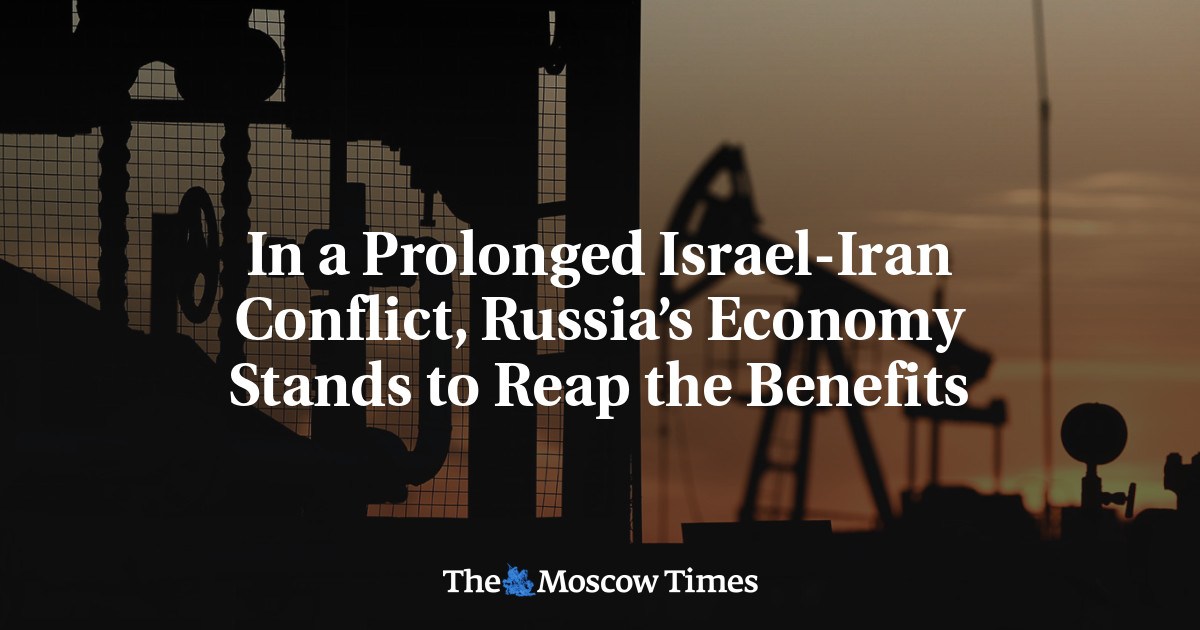
In a Prolonged Israel-Iran Conflict, Russia’s Economy Stands to Reap the Benefits
How did your country report this? Share your view in the comments.
Diverging Reports Breakdown
In a Prolonged Israel-Iran Conflict, Russia’s Economy Stands to Reap the Benefits
Oil prices remain volatile as the escalation between Israel and Iran threatens to spill over onto a regional scale. Moscow benefits most from a protracted conflict that does not spill over into all-out war. Goldman Sachs estimated that Brent crude could briefly peak at $110 per barrel if oil flows through the Strait of Hormuz are halved for a month. About 14 million barrels of oil per day, or about 20% of global oil volumes, are transported through the strait, including Iran’s own exports. The key risk in a war between Iran and Israel remains potential disruption to regional energy exports.
While this instability boosts Russian coffers, the outcome depends on how long the conflict lasts and how intense it is.
Moscow benefits most from a protracted conflict that leaves uncertainty over energy supplies but does not spill over into all-out war.
Here’s a closer look at how the Israel-Iran confrontation could impact Russia’s bottom line:
What happened?
On Sunday, Iran’s parliament approved a measure to close the Strait of Hormuz, a vital energy corridor used by Iran, Saudi Arabia, Iraq, Kuwait, Qatar and the United Arab Emirates to export one-third of the world’s seaborne oil and gas.
The news brought Brent crude futures to a high of $81.40 per barrel on Monday, before Donald Trump’s announcement of a ceasefire between Iran and Israel sent it plunging to to $67.30 per barrel.
This is slightly up from the $66.60 per barrel recorded on June 11, before tensions escalated into open conflict.
The situation in the region remains precarious despite Trump’s announcement as Iran and Israel have yet to reach a formal ceasefire agreement. Reports said that the sides continued to exchange strikes as recently as early Tuesday morning.
On Monday, Goldman Sachs estimated that Brent crude could briefly peak at $110 per barrel if oil flows through the Strait of Hormuz are halved for a month.
The bank forecast an average price of $95 per barrel for the fourth quarter of 2025 if disruptions occur. By comparison, in March, it had forecast an average of $78 per barrel for the entire year.
Why is the Strait of Hormuz important?
The key risk in a war between Iran and Israel remains potential disruption to regional energy exports, particularly through the Strait of Hormuz, where Tehran could obstruct passage.
About 14 million barrels of oil per day, or about 20% of global oil volumes, are transported through the strait, including Iran’s own exports.
Some countries have alternative routes. For example, Saudi Arabia can export some of its oil via the East-West pipeline to Red Sea ports, and Iraq can export its oil through pipelines in Kurdistan.
Nevertheless, a significant amount of oil and LNG would be stranded without access to the strait.
“Most volumes that transit the strait have no alternative means of exiting the region, although there are some pipeline alternatives that can avoid the Strait of Hormuz,” according to the U.S. Energy Information Administration (EIA).
